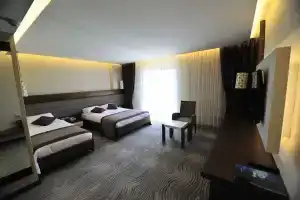Agri
Description
Ağrı, formerly known as Karaköse from the early Turkish republican period until 1946, and before that as Karakilisa (also rendered as Karakilise) (Ottoman: قرهکلیسا), is the capital of Ağrı Province at the eastern end of Turkey, near the border with Iran.
History
In the Ottoman Empire era the area was called Karakilisa (قرهکلیسا). The current town centre was founded around 1860 by a group of Armenian merchants from Bitlis with the name Karakilise ("the black church") that became known to the local population as Karakise and this version was turned officially to Karaköse at the beginning of the Republican era. This name was changed to Ağrı by 1946.
In the medieval period, the district's administrative centre was located at Alashkert, once an important town. The "kara kilise" that gave the town its name was a medieval Armenian church. In 1895 Lynch stayed in Karakilise and wrote that it had between 1500-2000 inhabitants, was nearly two-thirds Armenian, and that a barracks for a locally-recruited Kurdish Hamidiyeh regiment had been recently located in the town.
The Armenian population of the town and surrounding valley was massacred during the Armenian Genocide: a New York Times report from March 1915 talks of the Alashkert valley being covered with the bodies of men, women, and children.
Economy and infrastructure
Ağrı contains most of the industry in Ağrı Province where the main economic activity is Agriculture and Animal Husbandry. There is Ağrı Meat and Milk Factory and the ELDESAN leather factory is one of the biggest in the region. There is also a Sugar Factory, Shoe Factory Flour Mills, Agricultural Equipment manufacturing sites, brick factory, lime factory, furniture factory, dairy factory and textile mills.
North of Ağrı, there is a longwave broadcasting station with 2 250 metres tall guyed masts, broadcasting on 162 kHz with 1000 kW.
It is a very poor region with extremely cold winters. Most people live by grazing animals on the mountainside. Few people manage to attend university; people tend to marry in their teens and families with ten or more children are common. The local MP Fatma Salman Kotan has written of the need to erode the patriarchal nature of society in the region.

